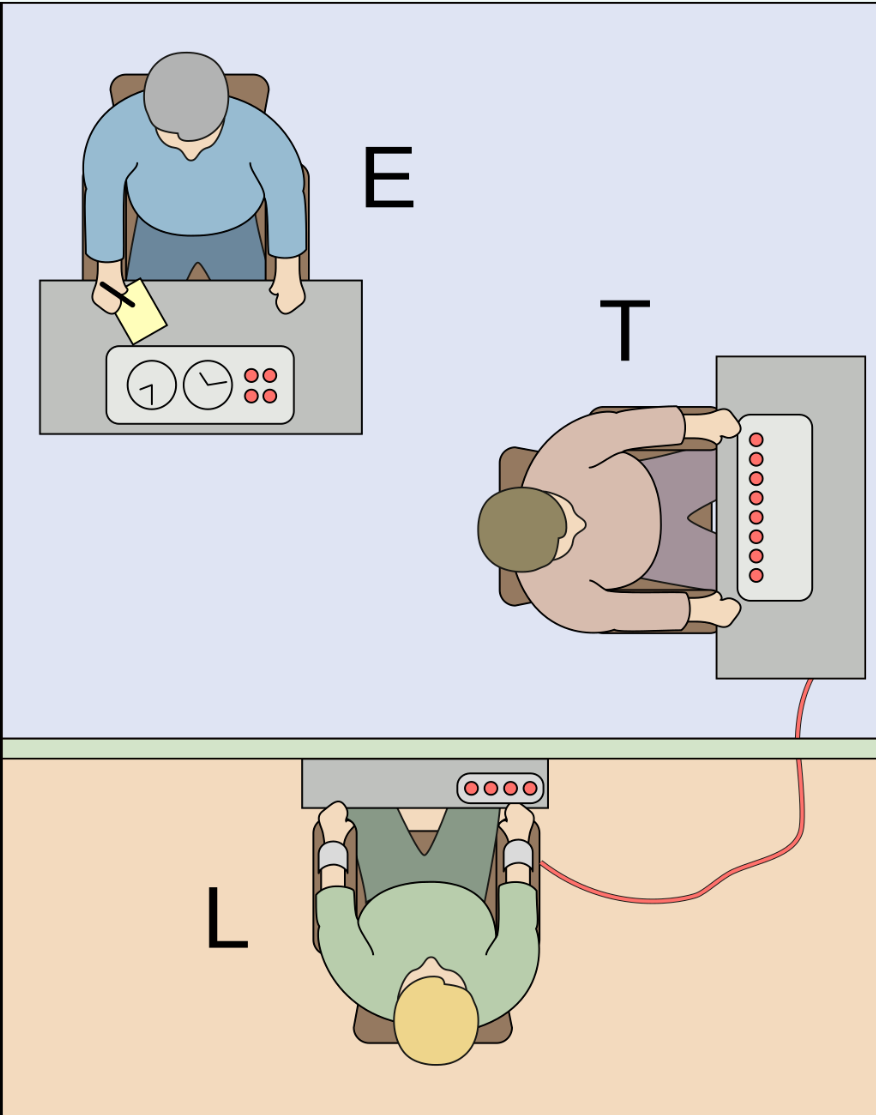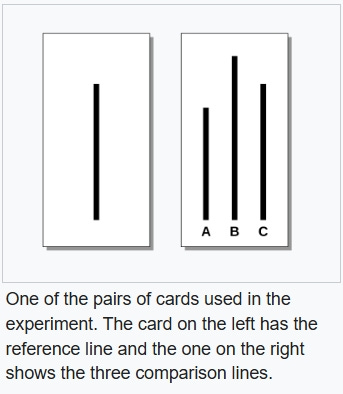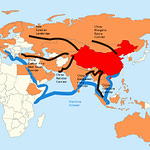(If you’re reading this in your email browser, I recommend clicking on the title to switch to reading on the Substack platform (https://juliusruechel.substack.com) because most email programs truncate larger image-rich Substack posts.)
This is Part Two of my Deep Dive into the psychological unravelling of Western Civilization.
In Part One — Why Western Civilization Lost Its Mind — I explored the psychological pressures that are pushing society into dysfunction and chaos as all the civilizing forces that keep our feral human nature in check begin to break down.
In this second part of the essay — Brain Games — I will explore the many strange ways in which our brains work, which, when overlaid on the emergent political, institutional, and social crises that are enveloping civilization, explain many of the bizarre behaviours that are boiling out of society.
For example, will see how toxic ideas boiling out of our broken institutions can spread like wildfire through our hive-minded society, much like a faulty “software update” can spread through a network of interconnected computers. We’ll also explore our instinctive tribal nature and the implications of the Asch Conformity Experiment, which revealed how easily we succumb to group think.
We’ll also examine how the supposed hyper-individualism of the post-WWII era actually fueled an era of hyper-tribalism thanks to a phenomenon known as the “zeal of the convert”. And we’ll learn about the bizarre loyalty tests that monkeys impose on each other to test one another’s tribal loyalties.
We’ll also explore the strange analogy of the Rider and the Elephant (metaphors for emotional vs rational thinking), as well as the Stanford Prison Experiment, the Milgram Obedience Experiment, the primate studies that revealed the tyrannical rule that happens when a coalition of betas is able to overthrow an alpha, and discover how small intolerant minorities can impose a kind of dictatorial rule over tolerant majorities.
In the upcoming third and final part of this essay — A People Unfit for Democracy — I will explore the social cycles that have haunted humanity since the dawn of time as different forms of government rise, grow stale, and get replaced by the next stage — and the implications for our own era as our corrupted democracies teeter on the brink of exhaustion (make sure you subscribe to my Substack so you don’t miss it!)
~ ~ ~
1. How Faulty Software Updates Get Uploaded to the Hive Mind
Everyone thinks they know how to make a pencil until they’re asked how they would mine and refine the graphite to make the lead, how to build the chainsaw used to cut down the tree to make the wood, how to build the lathe to mill that wood into the shape of a pencil, how to mine and refine the steel required to build the lathe that mills the wood, how to make the machines that are required for mining and refining the raw iron ore required to make that steel, and so on. (If you’ve never read the famous story of I, Pencil, I encourage you to read it here.)
What’s true about pencils is true about virtually all of civilization, including most of the thoughts and beliefs we carry with us. We each have a tiny area of direct experience and expertise, but beyond that we merely function because we tap into the knowledge and wisdom of a greater whole as we rely on the expertise of others to carry us through life. We are not fully autonomous individuals; we are wholly dependent on being plugged into a much larger functional herd.
And the more complex society gets, the more dependent we become upon the expertise of others. No other animal species collaborates so fully with other non-related members of its own species. In effect, we each are merely cogs in a much larger unit — civilization happens when all those separate parts come together.
In order to navigate this complex society, every individual quite literally builds a seemingly coherent mental map of the world by adopting/outsourcing information, technology, and skills from others. What choice do we have — it’s the only way to navigate the vast complexity of human society. Without that outsourced second-hand knowledge, skills, and technology, we’re reduced to an atomized collection of individuals scrambling to live hand-to-mouth.
Individually, our mental map of our world may be wholly incomplete, deeply flawed, and full of irrational beliefs, but as long as we continue to successfully perform our little part within our larger functional society, civilization blooms nonetheless. As long as the information and technology circulating in society is grounded in some version of reality, flawed individuals with limited information can collaborate to create a functioning whole.
I know that plate tectonics and viruses and the vacuum of space are real. And yet, I’ve never seen the continents move, seen a virus with my own naked eye, or experienced the cold emptiness of outer space. I rely on the knowledge, calculations, and experiences of others. But as long as those ideas pass through a functioning institutional process that serves as a kind of gauntlet to separate the good from the bad, I can thrive nonetheless based on my own incomplete and outsourced mental map of how the world works.
The same is true of our understanding of philosophy, history, morality, and so on, which are all essentially ideas imported into our minds from others — mostly through memorization — and then we build our own lives and choices on top of that imported knowledge base.
But what happens when the ideas boiling out of our institutions and being shared within our peer groups become compromised by corruption, self-interest, or ideology? And what if something as simple yet fundamental as freedom of speech has been suppressed for political purposes, which makes it all that much harder to course-correct?
Garbage in, garbage out.
If the processes I trust to deliver accurate information begin to spew nonsense, then I will build a coherent map of the world based on that nonsense and not know the difference. And I will begin to act upon those nonsensical beliefs.
That’s when the glue that enables a cohesive collaboration between flawed individuals begins to come apart. Planes start falling out of the sky. The lights begin to flicker. And what counts as “moral” and “true” unravels into chaos.
In the late stage of the civilizational cycle, which I discussed in Part One of this essay, when all the institutions and core assumptions are corrupted, politicized, or obsolete, increasingly bizarre beliefs begin to boil out across the whole of society — even as all the institutional processes that normally filter information become too corrupted and too politicized to purge those falsehoods before they become embedded in the minds of greater society. These erroneous beliefs are then compounded as other individuals, politicians, activists, and corporations upload those faulty ideas, incorporate them into their “operating system”, and even learn to weaponize them against others for their own benefit.
And so, that’s how we get from a philosophy of “sticks and stones may break my bones” to a new era in which we censor factual information to protect “permanent victims” from “emotional trauma”, backed by an entire rotten academic community churning out rotten research that cherry-picks evidence to make eloquent arguments in support of that idea.
Like a software update gone wrong, as the institutions start spewing nonsense, those faulty updates spread like a mind virus throughout society as society attempts to behave in a way that is consistent with those faulty uploaded beliefs.
The main difference between a society steeped in superstition and a society steeped in evidence-based thinking is not the people themselves — most are exactly the same faulty, superstitious, irrational human beings — for the most part, the only difference is the guardrails of the institutions that filter and spread knowledge.
Humans may not be logical, and they may be very bad at long-term second-order thinking, but they are extremely creative, adaptive, and opportunistic. So, if inventing another gender, or wrapping themselves in victimhood, or catering to dominant political narratives leads to power or resources, most will not hesitate to do it. And many will not even realize there’s anything wrong with their thinking because none of their previous beliefs were acquired due to anything other than mimicry either.
Such is the illogical nature of our human species.
In 2011, researchers at the Rensselaer Polytechnic Institute conducted a study into how ideas spread. They discovered that “when just 10 percent of the population holds an unshakable belief, their belief will always be adopted by the majority of the society.” In other words, once an idea (good or bad) reaches 10% penetration of the population, that’s the tipping point when that idea goes mainstream. A few quotes from the linked article tell a damning tale:
“When the number of committed opinion holders is below 10 percent, there is no visible progress in the spread of ideas. It would literally take the amount of time comparable to the age of the universe for this size group to reach the majority.”
“Once that number grows above 10 percent, the idea spreads like flame.”
“[As] true believers began to converse with those who held the traditional belief system, the tides gradually and then very abruptly began to shift.”
"In general, people do not like to have an unpopular opinion and are always seeking to try locally to come to consensus.”
It reveals that most people essentially outsource their thinking by observing and mimicking the ideas that are most forcefully defended by those around them, even as they are firmly convinced that they adopt those ideas after a rational weighing of the facts. The power of the Hive Mind is very, very real.
It’s a reality about our human nature that’s easily weaponized by bad actors because it means that a very vocal and well-funded campaign inside a small population can very easily mainstream new ideas. It’s not an accident that radical new ideas often originate on university campuses, where students are especially vulnerable to GroupThink due to their age and the social pressures inside those institutions. This makes the university a high-payoff focal point for activist groups looking to inject ideas into a small population, which then carries these ideas out into the wider population, into corporate workplaces, into politics, and into the media.
The complexity of our civilization is effectively working against us because any system that relies on outsourcing most of its thinking to others is a sitting duck for any false belief that acquires an aura of credibility as that belief gets spread through our institutions, media, and political leaders.
I remember a particular incident in which someone told me to my face that they’re not interested in looking at dissident evidence because they have chosen to trust the “experts” showcased in the media because to do otherwise would be too destabilizing and would leave them without any anchors upon which to base their beliefs. In other words, “if you can’t trust the institutions and the experts, then who do you trust?”
It’s a perfectly logical position to take, even if it leads to absurd consequences — it’s simply not possible for any individual to navigate all these complex ideas, technologies, and systems on their own, so if we abandon our trust of the experts and institutions, we are left completely rudderless.
Thus, those who trust the experts during an unravelling era are hopelessly led astray and are left trying to rationalize the most bizarre absurdities as they faithfully mimic ever more irrational beliefs and adopt ever more illogical ideas. Yet, they stick together as a kind of pack, united in their trust in broken institutional processes, which gives them the upper hand, culturally, to continue driving the herd towards ever greater insanity.
Meanwhile, the dissenters may have figured out that the institutions are all rotten, but they face another problem, which makes it difficult for them to unite to turn the tide — to whom do you give your trust if you no longer trust the institutions or any of the gatekeepers of the scientific and regulatory processes? To a limited degree, we can take greater responsibility for educating and informing ourselves, but in a complex world that will only get you so far. As dissenters stop trusting the experts, they are left to unravel into disarray as they begin to cast about (or invent) explanations for how the world works in the absence of institutional filters to provide guardrails for their thinking — that’s how you got to the bizarre situation during Covid when, in the flurry of competing dissident information, some dissidents became simultaneously convinced that the Covid virus never existed and was merely a re-branded flu season, yet also firmly believed the Covid virus was a bioweapon designed to depopulate the planet — both obviously cannot be true, yet I remember interacting with quite a few people during the height of the Covid Madness who took both opinions at once or alternated between them depending on which social media headline they were reacting too.
And so, without the grounding influence of functional institutions, the dissenters fall prey to superstitions, tribal beliefs, and countless charlatans offering alternate explanations that sound plausible to ears with little first-hand experience with a topic. Over time they unravel into bitter internal wars as the fighting begins over who is right and who is wrong, with the loudest, most attention-seeking voices with the most impressive credentials or the most attention-grabbing dissident headlines tending to dominate the debate regardless of whether they actually have a clue.
Without institutions to structure our thinking and to force us to follow a disciplined and methodical process by which to observe, gather evidence, and think through problems, society is left utterly rudderless and vulnerable to lies, half-truths, and superstition, regardless of whether you still “trust the experts” or whether you’re among the ranks who have woken up to the fact that the experts can no longer be trusted.
The solution is not to find some new “trusted voice” to guide you through the chaos — there’s no such thing as an infallible prophet — the solution is to begin restoring the institutions by rooting out the corruption and conflicts of interest, realigning the incentives, and reviving the core principles (like freedom of speech) that once made these institutions work as a truth-finding process in spite of our flawed human nature.
As Professor John Ioannidis explained in his famous 2005 essay, Why Most Published Research Findings Are False, scientific research has become so sloppy, and with outcomes frequently “massaged” to suit the biases of whoever issues research grants, that there is less than a 50% chance that the results of any randomly chosen scientific paper are true. But the Hive Mind gobbles it all up even as all the rot is weaponized and bent to serve all sorts of political agendas.
The only way to fix this is either to gut those institutions to turn back the clock to a time when they were less politicized and less infested with corruption and ideology (a likely hopeless endeavour) or, more realistically, to start building new parallel institutions which will hopefully, in time, replace the defunct institutions of our era.
To save society from tribalism, irrationality, and superstition, you have to start by rebuilding the guardrails of civilization itself, beginning with the institutions and culture.
2. Tribalism on Steroids
From our earliest beginnings, humans have always been herd animals. Membership in the tribe is and always has been essential to our survival in order to share resources, information, skills, and work tasks within our tribal family, and as a means of defense against other hostile tribes. Our effort to build large civilizations that demand cooperation between large numbers of people who are not directly related through family ties has only reinforced those herd instincts. If we cannot blend our individual identities into a larger collaborative hive mind mentality, civilization becomes impossible.
The trouble with being part of a tribe is that you have to, by necessity, sacrifice some of your autonomy and independent thinking in order to belong. Groupthink leads to agreeable social harmony within the “in-group” while making your group extremely resistant to attack from “out-groups”. By contrast, rugged individualism leads to non-stop friction between the disagreeable individual members of the tribe. And it causes large strong tribes to fracture into many smaller more vulnerable tribes that can be picked off by their larger hostile neighbors. In other words, evolution itself has consistently favored those who can lose themselves to GroupThink while consistently burning the witches that fall out of line.
In 1951, the Asch Conformity Experiment set up a series of deceptively simple experiments in which a group of test subjects were asked to compare a reference line to a choice of three lines of different lengths and asked to compare which line was the same length as the reference line. Simple, right? Not so fast.
The dirty trick underpinning the experiment was that it was carried out in a large group, with each participant asked in turn for their answer. In reality, most of the “participants” were actors. And after the first few rounds, these actors began to give the same wrong answers in order to force the real test subjects to have to choose between the evidence they could see with their own eyes versus maintaining conformity with the group.
This sneaky test revealed that only around 25% of people are consistently able to resist GroupThink — 75% of society succumbs and will override the evidence that’s right before their eyes (even with something as simple as lines on a piece of paper!) in order to adapt to the answer given by the rest of the group. Some just bite their tongue and go along with the herd to get along. But more frightening is that many completely deceive themselves into believing that the wrong answer is actually correct because the rest of the group said so, simply because it is too psychologically painful to be out-of-sync with group opinion.
In short, we are literally wired to override the evidence we can see with our own eyes in order to maintain cohesion within our group. We are herd animals, and so we orient towards the consensus of the herd. For most people, social harmony comes before truth. This is why it’s easy to have perspective and clarity in solitude, but it’s so hard to keep that perspective as soon as you become part of a crowd. That’s also why good, moral, empathetic, upstanding citizens can commit the most horrific crimes if they are part of a lynch mob. This aspect of our human nature makes us very, very “hackable”.
Project that lesson onto modern society, where our institutions are corrupted and captured by political agendas, where our media is serving as a deliberate propaganda tool for establishment voices, where our cultures have been overrun by mass migration without a need for assimilation from cultures that did not grow up in a tradition of classical liberal values, and where most people are simply not knowledgeable enough about most issues to have a high degree of confidence in their opinions about complex issues that they know little about — it’s a combustible recipe for runaway GroupThink.
If you’re unfamiliar with the Asch Conformity Experiment, it’s worth taking 4 minutes to watch the sobering clip below to get up to speed.
The experiment was a shocking exposé of how easily our minds can be “hacked”. And yet, it is an essential part of our survival as a species because it allows us to create conformity within the herd, which would otherwise fracture into disarray and leave us vulnerable to be conquered, killed, or outcompeted by rival tribes.
Furthermore, to achieve the high degree of collaboration between unrelated individuals that is required in order to build a complex civilization, you need a high-trust society. Your “tribe” is essentially a large extended family with a set of shared values, beliefs, principles, and common goals. Your behaviour, your sense of right and wrong, your confidence that your family can be raised in peace at the center of that herd as long as you play by the rules of the tribe, and your security if another tribe attempts to attack you, all stem from your tribal membership.
And so, a very high degree of social cohesion within our tribe (a.k.a. agreeableness) is hardwired into our DNA because it has been essential to our survival for millions of years — even if it frequently comes at the expense of the truth.
3. The “Zeal of the Convert” — the Failed Experiment of Post-WWII Hyper-Individualism
One of the most defining accomplishments of classical liberalism was to transfer our tribal identity onto the nation state to turn the nation as a whole into an even bigger “family”. In America, that national identity was built around the idea of individual freedom, which was safeguarded by a universally accepted set of rules enshrined in the Constitution and the Bill of Rights. By contrast, in Europe that “national” tribal identity was built around ethnic and/or religious identities — Germany for the Germans, France for the French, Sweden for the Swedish, Turkey for the Turks, etc. And in Canada (outside of Quebec), that national tribal identity was built upon “not being American” ever since the Loyalists fled north to populate Canada after losing America’s Revolutionary War.
However, WWI and WWII demonstrated that ethno-nationalism is a combustible recipe that leads to ferocious wars between nations and to horrific persecution and even genocide against minorities living inside those ethnostates. And so, post-WWII internationalism deliberately set about collapsing the idea of national identities and replacing them with the lovely-sounding idea of “multi-culturalism” — epitomized by Trudeau’s post-national Canada.
Europe also jumped head-first onto this idea by creating the European Union with open borders and by embracing mass migration. America did the same thing, though to a lesser degree because America’s founding identity as a multi-ethnic melting pot centered on the idea of individual liberty, which was more resistant to the artificial multi-cultural identity that was being pushed by the globalists.
But multi-culturalism goes entirely against our natural tribal instincts. We are a tribal species that looks for easily-identifiable markers to find our “in-group” — a couple decades of idealistic social engineering cannot erase instincts that are written into our DNA.
By collapsing national identities in an effort to live together as the “United Nations”, our tribal instincts began to “invent” new tribal identities to regain the sense of belonging and security that comes from being part of a larger tribe. Contrary to popular beliefs, post-nationalism didn’t create an individual identity crisis; on the contrary, we simply pivoted to new identities and invented new tribes to fulfill that same underlying instinct to belong to a larger family. But what it did do was strip us of a shared identity as society fractured into countless smaller tribes.
The world is a hostile and competitive place — instinctually we seek to face off against the world with a strong tribe standing behind us. And so, those who most wholeheartedly embraced this new idea of multi-culturalism (and therefore voluntarily shed their national or ethnic tribal identity) were thus the most prone to adopting wokeism, neoliberalism, socialism, and post-nationalism as their new tribal identity… and then immediately set about (in the tradition of our tribal ancestors) to start beating everyone over the head who didn’t embrace this new identity. We may have technologically distanced ourselves from the Stone Age, but the instincts of the Stone Age are still alive and well deep within the subconscious recesses of our minds.
Furthermore, within that multi-cultural envelope, a host of additional tribal sub-group identities began to crystalize out of the multi-cultural soup — gender, sexuality, various victimhood identities, vaccination status, and so on and so forth. Even identity based on skin color is experiencing a revival among the woke. Fashion trends have become tribal markers. As have hobbies, and even the type of car you drive.
Complicating it all, many ultra-religious immigrants pouring into our countries under the new anti-nationalist policy of unassimilated mass migration, who do not share the Judeo-Christian cultural traditions of their new host country, were suddenly freed from the responsibility to assimilate and instead began hardening their individual sense of identity around their religious identity (a problem that many Western nations will soon need to confront as that demographic continues to grow).
And, while politics once came secondary to national identity, in a post-national world that stripped away national identity, tribal identity based on political allegiance became increasingly important to the point where it now hangs over everything — it’s an explosive recipe for massive civil unrest.
We typically think of the 20th century as the era of hyper-individualism, yet in reality it was anything but. In reality, it was an era of fracturing tribal identities as society splintered into countless micro-tribes. The pressure to conform to your micro-tribe was immense, but were you a jock or a nerd, an it-girl or a trad? And are you a Republican or a Democrat?
Just because we were free to choose our own identities didn’t reduce the likelihood that we’d become less tribal — in fact, by virtue of choosing our tribes instead of being born into them, our tribal identities arguably became 1,000x more important than they ever were before. By choosing our own identities, we inadvertently tap into our emotions as we make our choice, which makes us much more emotionally invested in our tribal identities. When we are born into our tribal identities, we are much less likely to obsess about it. The convert has always been the most passionate believer — “the zeal of the convert” is a well-known phrase to describe the intense enthusiasm and dedication someone shows after adopting a new belief, cause, or identity, often surpassing those who have held it longer.
Furthermore, as we centralized ever greater power and resources in the hands of the government over the course of the 20th century, the size of the prize kept growing larger for anyone who figured out how to manipulate the government to give them preferential access to that power and those resources. Once again, the incentives favor tribalism to get your group to the top of the hierarchy — the nanny state creates the ideal incentives for tribal collaboration.
And so, while wokeism is united in its hatred of nationalists, conservatives, and free thinkers who refuse to bow to woke tribal identities, the woke tribe is simultaneously composed of a thousand warring internal divisions as those micro-tribal identities compete for preferential access to power, resources, and privileges.
None of those individuals are “broken” — they are merely acting out the stone-age instinctual programming that naturally seeks out a tribal identity to help “the naked ape” compete in a complex hyper-competitive world. Tribal allegiance and tribal collaboration are the keys to maximizing power, privilege, and preferential access to resources.
With tribal identity also comes tribal loyalty, yet another impulse that is written right into the fabric of our DNA. We instinctually know that those whose loyalty changes with the changing direction of the wind cannot be trusted… and so we are instinctually wired to defend our tribe and maintain our tribal allegiance even if it requires overriding our own perceptions, ignoring obvious “facts”, and even if it requires putting up with some awful tribal rituals to prove our membership and loyalty to the herd. The need to fit in has forever been a stronger impulse than the need to be right — the witch-hunts of history have always served the dual purpose of purging the free-thinking dissidents who threaten the social cohesion of the herd while simultaneously setting an “educational” example for the rest of the herd to teach them to set aside their misgivings and commit wholeheartedly to defending the consensus of the herd.
As an aside, in his book Games Primates Play, professor of psychobiology Dario Maestripieri describes the never-ending loyalty tests performed by capuchin monkeys who will walk up to their favorite social partners, stick a finger up their partner’s nose (sometimes for several minutes), and wait for a reaction — “if the relationship is good, nothing will happen, but if the partner has lost some of the initial enthusiasm about the partnership, the annoying monkey will get smacked.” They also “torture their favorite coalition partners by pulling hairs from their faces, biting their ears, or sucking their fingers or toes.”
Much of what we see going on in our fractured hyper-tribal modern society fits this mold of bizarre social signals designed to serve as tribal loyalty tests, much like cults have always performed bizarre rituals to help re-enforce in-group bonds and clearly identify out-groups. These bizarre emergent rituals are complex never-ending loyalty tests designed to sort friend from foe, not altogether different from the capuchin’s finger that gets thrust up your nostril to easily identify whose side your on.
Those of us who failed to take the vax, refused to wear the masks, refused to play pronoun games, refused to fly the current flags to signal our support for whatever is the “current thing”, or refused to express outrage in support of the “right” causes, we have all outed ourselves as “traitors” to their tribes — we have marked ourselves as suspect, probably for life. The tribal identifiers and loyalty tests are everywhere: climate hysteria, Trump Derangement Syndrome, Covid hysteria, saving Ukrainian democracy, the Palestinian victimhood narrative, the “elbows up” movement in Canada, Black Lives Matter, Canadian land acknowledgements, the Trans agenda, pronouns, the MeToo movement, crypto speculation, and so on, are all complex tribal markers — none of these issues stand up to the facts, but they’ve all evolved into tribal loyalty tests and tribal social signals designed to signal tribal identities and defend our reputation within our tribe.
As long as this hyper-tribal ecosystem persists, any new factual piece of evidence that emerges to challenge the cult-like beliefs of the tribe is an attack on the integrity and cohesiveness of the tribe itself. Even the witch-hunt is ultimately the tribe seeking to preserve its cohesion against the independent thinkers whose influence threatens to tear the tribe apart. Do you admit the CBC News is lying to you, only to condemn yourself as an outcast, or is it easier to simply suppress the conflicting information — like in the Asch Conformity Experiment — to convince even yourself that line A is the same length as the reference line because everyone else in the room says it is so.
The stakes couldn’t be higher when breaking with conformity leads to social death or the destruction of decades of time and money invested into careers. In our hyper-tribal political era, even the justice system has now been captured and is being used to reinforce those tribal rituals, with increasingly harsh criminal sentences being imposed upon those who veer into WrongThink.
Your neighbor wasn’t stupid for believing for four years that Joe Biden’s mind was sharper than a tack even as Joe was stumbling to read a coherent sentence off the teleprompter — your neighbor was trapped in a perfectly “rational” unconscious calculation about tribal loyalties and the desire to protect her own reputation within the herd. That internal psychological pressure allowed her brain to re-write the perception of reality to avoid falling out with her tribe.
This psychological pressure to conform with one’s tribe is so intense that many of those who participated in burning witches in the 17th century genuinely came to believe they had seen their neighbors ride broomsticks because their own brains had tricked them into believing it to be so in order to fit with society’s expectations and avoid the wrath of the Inquisition. And so it is with all of the other “current things” that defy all evidence but tap into our tribal loyalties.
Our perception of reality and even our memories are so mouldable that entirely false yet extremely vivid memories of events that never happened can become implanted in the mind through counselling and social pressures — a fact that was exposed after the “Satanic day care moral panic” in the 1980s when overzealous therapists, social workers, and investigators used suggestive interviewing techniques on children and in doing so unintentionally planted completely false memories in their heads, which then led to very real criminal prosecutions of their innocent “abusers.”
To fit in with our herd requires us to deny reality and believe the false narratives — such is human nature. And the more tribal society becomes, the more pervasive these alternate realities and evidence-defying narratives become. We are swimming in a sea of zealous true believers for whom tribal loyalty has become everything — “tribe over truth” is real.
Without that small subset of independent thinkers who resist that pressure, our tribal minds would make progress impossible as the tribe’s GroupThink and suspicion-riddled thinking would soon lead the entire tribe to throw itself off of some proverbial cliff, like the Xhosa cattle-killing movement did in the 19th century, which I described in Part One of this essay.
And yet, without that hive mind mentality to bind us together, which the Asch Conformity Experiment seems to suggest includes around 75% of us, society would lack the cohesiveness required to prevent tribes from unravelling into internal chaos, we wouldn’t be able to build big enough harmonious tribes to defend ourselves from other hostile tribes, and we wouldn’t be able to sustain the complex long-term collaboration that is required to build large, stable civilizations.
However, by dismantling nationalism and trying to impose a post-national identity onto post-WWII society, we unleashed an intense and growing wave of rabid tribalism and plunged society into a civilization-destroying cycle of internal tribal wars and witch-hunts.
Our ill-fated attempt to try to turn the globe into the United Nations set us on a dangerous path to tribal chaos, witch-hunts, conflict, and war. And until we begin to rebuild a new national identity around which to anchor society, that chaos is only likely to continue to get worse.
4. The Rider and the Elephant (Rational vs Emotional Thinking)
Before I continue, I want to take a quick moment to thank all my paid subscribers for your support. It means the world to me!
If you are a free subscriber, I’d like to ask for your support by upgrading to a paid subscription. These kinds of essays require a colossal amount of time, effort, and research to produce. My liberty to tackle topics that others cannot comes from the fact that I am not sponsored by any think tank, media outlet, or political organization. I rely 100% on support from readers like you.
But if you’re not quite ready to sign up for a paid subscription, perhaps you’d consider leaving me a tip in the Tip Jar on my website to help support my writing.
Most people are firmly convinced that they are conscious, rational, and logical thinkers. And sometimes, on rare occasions, if we are separated from the herd for long enough and become comfortable with our own solitude, sometimes we even briefly succeed.
But rational, conscious thinking is a very recent development in our evolutionary history. Our prefrontal cortex where conscious thinking happens is essentially a recent add-one. Most of our thinking happens at the subconscious level, in the older limbic system — the emotional, intuitive, and instinctive part of the brain, which is driven by primal urges and emotions.
As psychologist Jonathan Haidt so eloquently explained in his analogy of the Rider and the Elephant, we think the rational, conscious part of the brain (the Rider) is in charge when in reality its the subconscious emotional part of the brain (the Elephant) that’s actually making most of our decisions for us at a subconscious level, with our rational brain then doing the mental gymnastics to rationalize whatever the Elephant wants. Most of the time, the Rider isn’t actually in control, he’s merely finding ways to rationalize why the Elephant is stampeding in whatever direction it currently wants to go.
The Elephant solves the simple problems (mostly concerned with survival) whereas the Rider solves the complex problems (problem solving, critical thinking, planning, creativity, etc.). But the Rider can only solve these complex problems while the Elephant is calm. Strong emotions, fear, tribalism, hive mind group pressures, emotional news reports, and so on all essentially stampede the emotional Elephant, leaving the Rider to get swept along and scrambling to find ways to rationalize whatever emotional decisions were made by the Elephant. Propaganda works not only because the information is “fake”, but also because it taps into our emotions and turns off our ability to think.
In other words, anyone who succeeds in stampeding the Elephant by taping into our emotions has effectively “hacked” our brains and is now able to steer our Elephant.
When tribal loyalties are challenged by evidence or debate (“hey, how can temperatures be the hottest in 120,000 years when there are 5,000-year-old tree stumps in the High Arctic in places that are permanently frozen tundra today?”), the emotional subconscious brain recoils from the threat posed by these “forbidden questions”, leaving the rational brain to explain why the evidence should be rejected, which it usually does by slipping into reactionary defensive mechanisms (“you’re wrong, an idiot, a climate “denier”, a traitor who should be censored, and anyway, let’s change the subject and talk about something else.”)

Throw that irrational, emotion-driven thinking process into the already combustible mix of GroupThink and tribalism, and you’ve got the perfect recipe for a society to rationalize the most nasty behaviour towards “out-groups”, hunt down scapegoats, rationalize away any facts and evidence that conflict with established beliefs, and rationalize blind obedience to all the rot spilling out of our political and scientific institutions.
All the bad actors playing their manipulative games know this. Hacking brains with heightened emotions is easy, which is why everyone is permanently being propagandized by a non-stop stream of emotions — every product ad, political campaign, research grant, news story, and activist initiative is built on trying to tap into your emotions. No-one sells you a car based on a careful assessment of its capabilities and features; the ad is structured to sell you a feeling about a lifestyle and the person you will allegedly become once you get in the driver’s seat.
Basically, with psychological manipulation underpinning virtually every single thing we see and hear on the digital screens that accompany our daily lives, the whole of society is being kept in a permanent state of heightened emotions. And in that heightened state of emotions, it’s virtually impossible to think and to separate ourselves from the hive mind.
Cancel the cable subscription, unplug the television, block the outrage farmers on social media, switch to audio books instead of listening to the radio, and go for long walks alone to think things through — that’s the recipe to rescue your own conscious brain so it can slowly begin to think again. Until then, the Elephant will remain firmly under someone else’s control.
5. Role Playing — “Your Obedience is Essential”
In 1971, an ethically dubious yet highly instructive psychology experiment revealed the degree to which we are held hostage by our own imagination once we embrace and adopt a “role” for ourselves. It was called the Stanford Prison Experiment.
A number of volunteers were recruited from among the students at Stanford University (to be paid $15/day — $116/day in 2025 dollars) and were split into two groups — prison guards and prisoners — with the prisoners to be held for two weeks in mock jail cells in the basement of Stanford University.
Both “guards” and “prisoners” could have opted out at any time, yet neither abandoned their voluntary roles even as the experiment rapidly spiraled into ever greater depths of abuse and sadism. And the lead researcher, Philip Zimbardo, allowed it all to continue until another outside psychologist visited to evaluate conditions and was appalled, which broke the spell and forced Zimbardo to end the experiment early (6 days into the 2-week experiment). Even Zimbardo had become psychologically caught up in his dual “role” as impartial observer and “warden” to the point of losing himself to the same psychological dynamics that had infected the guards and prisoners.
Once we build an identity for ourselves, even if it is artificial and voluntary, we identify with that “role” and begin to live it in every fiber of our being. It becomes the lens through which we view the world — we literally fold ourselves into our new role-playing identity (which is one of the reasons why it is so psychologically damaging to begin to identify yourself as a “victim” of anything).
Now consider what this “role playing” instinct does to the minds of our bureaucrats and politicians as we give them ever greater power to “socially engineer” society and act as our shepherd. Likewise, consider how this “role playing” instinct has impacted society as a new morality emerged in the early 20th century centered around victimhood — which has given birth to new roles both as “victims” and as self-appointed “allies” and “white knights”.
Everyone plays their role as society is encouraged to rally together around some cause, and to punish dissenters to try to get them to fall in line. We all act out the roles we adopt for ourselves (or that our leaders assign to us). And, as the Stanford Prison Experiment showed, we also begin to treat others based on the roles that we subconsciously assign to them — to the point of unleashing a tirade of abuse and sadism against those who we perceive in enemy roles.
And the more power we give to others to micro-manage our lives, the more obscene it all gets as everyone loses perspective as they stay true to the role they have come to play in society.
Compounding this is our human instinct to defer to authority — yet another inevitable evolutionary consequence of genetics shaped in a hierarchical herd environment over millions of years. Once again, this too has significant implications for society as those instincts collide with the realities of living in a modern civilization.
As soon as you give someone power over you or choose to defer to their authority in important decisions, your instincts kick in to tell you to turn off your brain and behave like an obedient sheep — the alpha monkey makes the rules, and everyone else instinctively falls in line to avoid getting beaten to a pulp.
In the 1960s, the Milgram Obedience Experiments revealed the perverse lengths to which we override our own instincts and moral compass in our obedience to authority figures. The experiments involved a very professional and clinical-looking researcher, wearing a lab coat and holding a clipboard, and two test subjects. Like in the Asch Conformity Experiments, once again one of the test subjects was an actor who was in on the game with the researcher. This “learner” (the researcher’s accomplice) would be asked a series of questions and if he gave a wrong answer he would receive an electric shock, which would increase with each wrong answer given.
The other test subject was the “teacher”, who was tasked by the researcher to ask the questions and to deliver the electric shocks to the “learner” whenever wrong answers were given. However, this “teacher” did not know that the “learner” was an actor and that the electric shocks given to the “learner” were not real.

What began as “ouch” gradually ramped up to full-throttled screams as the “teacher” gradually increased the “voltage” from 15 to 450 volts as the wrong answers began to add up (the dial was even labeled as “danger: severe shock”). It was all designed to put maximum psychological pressure on the “teacher” to be appalled at the torture he was inflicting on the “learner”.
However, whenever the unsuspecting “teacher” started expressing misgivings about the shocks or expressed the desire to stop participating in the experiment, the researcher would look down his clipboard and then, in a detached yet authoritative voice, instruct the “teacher” to “please continue” (or some variant thereof). In the end, 82.5% of participants continued administering electric shocks long after the “learner” began to cry out in pain and began begging for the experiment to stop (above 150 volts), while 79% continued obeying instructions to deliver shocks all the way up to the maximum setting of 450 volts, by which time the “learner” was screaming in extreme pain.
In other words, obedience and deferral to authority is literally wired into our brains.
Only we’ve created a society with unprecedented concentrations of power in the hands of politicians, institutions, media personalities, and corporations, all telling us what to believe, say, and do. And when those institutions start going off the rails in an unravelling era, when all these people in positions of authority begin to project their own agendas onto society, and as leaders leverage our tribal nature for political gain, we have (once again) the perfect recipe for a storm of destructive behaviours that are obediently acted out by most of society.
“Yes sir, who do I hate today? And what would you like me to do to them to punish them for their WrongThink?”
Yet, instead of recognizing the dangers highlighted by the Milgram Obedience Experiments of what power in the hands of the few will do to the minds of the many who are subject to their authority, from the very start of the post-WWII era until today we have relentlessly expanded the size and scope of our political institutions and turned over our thinking to a variety of “experts”. And now, most of society is obediently acting like sheep with barely a whisper of resistance to the increasingly tyrannical authority of the “experts”.
6. The Tyranny of a Coalition of Betas
Chimpanzees, gorillas, and other primates all have intensely hierarchical societies. But the top monkey isn’t always some alpha. Sometimes, a coalition of weaker betas will unite to overpower and unseat the alpha — it could be multiple weaker males, or a weaker male acting in unison with one or more of the females, a group of females, or some other combination.
In his book Games Primates Play, Professor Maestripieri points out that when these coalitions of betas rise to power, they can often produce a reign of terror that is far more lethal, more prone to group violence, and more unpredictable and destabilizing to entire communities than the direct, predictable, and contained aggression of an alpha.
This “ganging up” behaviour is obviously not unique to the other primates — indeed, much of the victimhood culture that has emerged in recent years is fueled by weaker members of society (or those who have adopted a “victim” identity) who have learned to play on our emotions and play complicated word games as they collaborate with one another in games that overturn society’s natural social hierarchy, which was previously based on merit and competence.
The lazy, the incompetent, the stupid, the weak, and the power-hungry are all going to latch onto any belief system that pays dividends in a system that would otherwise be stacked against them. Not only did the modern neo-liberal value system of hyper-empathy and hyper-tolerance open the door to these games but, thanks to the industrialization and corporatization of society, most of society works and lives in environments dominated by complex bureaucratic systems — especially our institutions, political structures, and corporate-dominated world — which are all ideally suited for betas to leverage their coalitions as a way to cheat their way up the social hierarchy.
Today’s modern work environment is dominated by employment in large corporations and other large institutions (1 in 4 Canadian workers work for the government). By now in 2025, approximately 85% of people work in workplaces with ten or more employees — this metric quickly explains why our culture has become so receptive to forming coalitions of betas and using them to game the system — the payoff is huge for those who choose to play that game, and if enough people participate in that system (even begrudgingly in order to avoid making waves), it becomes the dominant culture in our society.
Compounding this is the fact that those who rise to the top of the hierarchies increasingly have no practical experience in the work that they regulate. As Professor Didier Raoult pointed out in his criticism of the Covid madness that enveloped society, the doctor who actually treats patients is increasingly regulated and controlled by healthcare boards composed of people who have never treated a patient. The “doers” have increasingly become subordinate to administrators and academic “experts”.
Raoult emphasises that 80% of people today have tertiary sector jobs (service sector, healthcare, administration, law, retail, finance, education, etc.), compared to only 30% a century ago — the frontline doctors, farmers, miners, engineers, craftsmen, and builders are now in the minority, outnumbered and typically regulated by people who do not directly produce with their hands and minds, but nonetheless are placed in a position to tell others (and especially others who do the primary sector jobs) how to behave. The politician and the bureaucrat tell the farmer how the farm. Healthcare boards are writing mandatory protocols for every disease that doctors must follow as treat their patients, thereby erasing the long-established principle of doctor-patient discretion. And university professors are advising governments on how to fight “climate change” or conduct foreign policy even those on the front lines are left scratching their heads at the idiocy prescribed by these “experts”
This emergent “technocracy” (government by “experts”) is literally a system in which those who don’t do the actual work and have little or no practical hand-on experience get to tell those that do the work and have practical hands-on experience how they should do their work — regulated down to the most microscopic detail. And those “expert regulators” all look at their credentials and think they know best because there’s some research paper (half of which are bunk anyways) that they can rely upon to justify whatever their imaginations tell them should be done.
It’s a recipe for disaster as they strangle society with their rules, create a system that is completely detached from the realities on the ground, and bamboozle society into blind obedience simply by virtue of being the “experts”.
And when they are challenged, these “experts” form tribal coalitions to defend their power and privilege in the social hierarchy — in fact, that’s how many bypassed the harsh demands of meritocracy to rise to the top in the first place. DEI is and always was a weapon custom-built to gain advantage in corporate and institutional hierarchies. And yet, an obedient society obediently defers to their authority nonetheless. It’s a circus that has gone completely off the rails.
7. The Dictatorship of Small Minorities
A society based on tolerance has another fatal flaw that is being taken advantage of as post-WWII hyper-tolerance and hyper-empathy are weaponized against us. Nassim Nicholas Taleb (author of Anti-Fragile and Black Swan) pointed out in a must-read essay on Medium that once a small but inflexible minority reaches a certain percentage of the population, the entire society has to submit to their preferences.
One of the examples he gives to illustrate his point is if you are hosting a summer BBQ, but one of your guests only eats Kosher or halal food, at that point you’re going to go out of your way to make sure that all the food you buy for the BBQ is Kosher (or halal) to avoid having to serve separate meals. And so, society begins to restructure itself to accommodate the least tolerant or least flexible members of the herd.
The consequences extend far beyond the backyard barbeque — even though the Kosher population represents less than three tenths of one percent of the entire US population, almost all soft drinks sold in the United States are Kosher.
As Nassim points out:
A Kosher (or halal) eater will never eat non-kosher (or non-halal) food, but a non-kosher eater isn’t banned from eating kosher.
A disabled person will not use the regular bathroom, but a non-disabled person will use the bathroom for disabled people.
Someone with a peanut allergy will not eat products that touch peanuts but a person without such an allergy can eat items without peanut traces in them.
But now consider how this principle of weaponized tolerance applies to the globalist/woke movement, which not only relies on leveraging victimhood, but is also exceedingly and indeed shockingly intolerant towards the rest of society while demanding that the rest of society accommodates them — from trans athletes taking over sports, to pronouns, to feminist diatribes, to accommodations made to avoid accusations of Islamophobia, to the radical demands of the mask-wearing Covid authoritarians who forced blind obedience from the rest of society to accommodate their own hysteria.
And so, we have created a perverse situation in which our society is obsessively committed to “tolerance” and “empathy” toward those who have none, thus handing over control to the most radical, the most intolerant, the most psychopathic, the most mentally ill, and the most corrupt, all of which leverage intolerance as a path to power.
And now we’re empowering a strong government hand to forcibly impose “tolerance” and “empathy” by mandate. Meanwhile, we have ever more lunatic ideas boiling out of our institutions to justify whatever whims intolerant minorities can come up with to demand special accommodations from the majority. And society’s hive mind mentality unquestioningly uploads and spreads those ideas across society.
In short, we have created the incentives for a proliferation of small micro-tribal identities that are all looking to weaponize this system to cheat their way up the social ladder.
These are the ingredients for the perfect storm… and the exit ramps off this madness are all disappearing as “tolerance” and “empathy” are gradually written into law.
~ ~ ~
In the upcoming third part of this essay, we’ll dive into the social cycles that the ancient Greek philosophers identified as they watched different types of government systems follow one after the other as each stage succumbs to corruption and instability, driven by our human flaws and the inevitable toll of societal decay, and explore the implications for our own era as our corrupted democracies teeter on the brink of collapse.
Thanks for reading — and please share my essay widely to help me grow my audience!
















